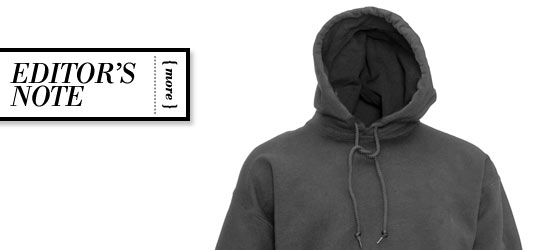It’s accurate to say that Florida teen Trayvon Martin and Facebook founder Mark Zuckerberg couldn’t be more opposite: One is dead following highly controversial and racially tinged circumstances; the other is alive and extremely healthy, particularly from a financial standpoint, thanks to the recent IPO of his popular social networking site. The move turned the billionaire into a multi-billionaire so many times over that contemplating his wealth is like trying to comprehend the vastness of space.
Anyone who hasn’t been living under a rock these past few months knows that Martin was a 17-year-old African American, infamously “armed” with soda and a bag of Skittles when he was killed by a 28-year-old neighborhood watchman. The watchman suspected Martin might be a burglar on the grounds of the gated Florida community where he volunteered to patrol. Martin’s choice of dress that night—a dark hoodie—played a critical role in his tragic fate. The watchman assumed that a black teenager in a hoodie was up to no good and should be confronted before any crime occurred. And this went horribly wrong when, instead of keeping an eye on the “suspect” until police officers arrived on the scene, the watchman took matters into his own hands. Martin’s hoodie served as a catalyst for his death. It was, you might say, a killer fashion statement for all the wrong reasons.
But what if it had been Zuckerberg—who would very likely have been wearing a hoodie as well—walking though that gated community that night? Would the watchman have pursued a slender, young, white man with the same zeal? I think it’s fair to say that there was another key element in the watchman’s reckless stereotyping that cost Martin his life.
In addition to the hoodie as a criminal’s on-the-job attire or a billionaire tech geek’s anti-establishment style moniker, there’s been plenty of talk of late about the clothing values of Americans—specifically, the shift into casual overdrive. Some pundits blame the look for contributing to the erosion of morals in our country. Case in point: The Secret Service agents who recently got caught up in the hooker scandal in Colombia were accused of looking unprofessional during the days leading up to their assignment. They were described as wearing cargo shorts and golf shirts, the standard fraternity boy’s attire. True, many of those agents were acting like drunken frat boys on spring break, but the suggestion that the clothing is indicative of debauched behavior is a stretch. Plenty of men wear similar outfits but don’t drink to excess or patronize prostitutes. And the suggestion by one columnist that none of this behavior would have happened if they had been dressed in classic G-men suits, skinny black ties and dark sunglasses is farfetched. Extending that flawed premise, if Trayvon Martin had been wearing a tuxedo that night he would be alive today.
Since when does wearing suits and ties guarantee that people are of good moral stature? One only needs to look at the recent financial debacle to refute such a misguided assumption about fashion. Those Wall Street crooks dressed to the nines, but it didn’t stop them from robbing their fellow Americans blind. What’s the difference between a thug in a hoodie taking your wallet and a man in an Armani suit draining your retirement account? The same lack of morals applies to both crimes. Only the dress code is different.
The problems don’t lie in our fashion preferences; they go much deeper than that. The lesson being ingrained in our country’s youth that lying, cheating and stealing on an epic scale can bring you vast riches is doing far more to erode our country’s morals than wearing hoodies or cargo shorts. And the fact that most, if not all, of those less sartorially menacing criminals remain unpunished only reaffirms the idea that if it’s “white collar” it isn’t technically a crime. Perhaps even worse, there’s a perception that getting away with it is something to be admired. The example being set is that greed is more than good; it’s the new gold standard.
They say clothes make the man, but that couldn’t be further from the truth. Morals make the man. Knowing the difference between right and wrong and having the moral fortitude to make the right choices has nothing to do with the clothing you wear. Fashion trends come and go, but what should never become passé is treating others with respect and decency.
As we cycle out of this current depression there may be a shift to dressing in a more sophisticated way to appear more hirable. Or it might happen because men are just tired of looking like 11-year-old boys. In any event, I’d take an honest person in a hoodie or cargo shorts any day over the slick wolf in banker’s clothing. Wouldn’t you? You might just wind up hiring the next Mark Zuckerberg. Or the next Steve Jobs, who was renowned for his casual dress. It was an occasion for him even to wear shoes, and when he did they were usually flimsy flip-flops. I’ll admit, though, if I was doing the hiring, I might draw the line at that fashion faux pas, potential visionary genius be damned.
Greg Dutter
Editorial Director




